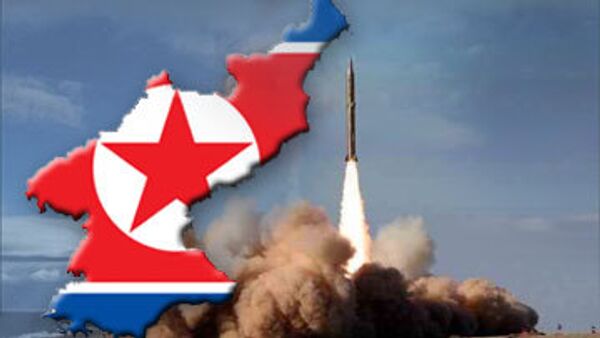MOSCOW, May 26 (RIA Novosti) - North Korea's underground test of an atomic bomb means that military force must be ruled out as an option to resolve the country's nuclear program, Russian experts on Korean issues believe.
"The existence of nuclear weapons, even if it's just one warhead, gives reason for restraint and [Pyongyang's] latest nuclear test has completely closed the door on using military force to solve the problem," Vladimir Yevseyev, a senior fellow at the Center for International Security at the Institute of World Economy and International Relations, said.
The UN Security Council held an emergency session on Monday after Pyongyang had announced an underground nuclear test blast. Russia later said the explosion had a force similar to the bomb that destroyed Hiroshima.
The reclusive communist state is banned from nuclear and ballistic activities under Security Council Resolution 1718, passed in 2006 after the North's first nuclear test, and is already subject to a range of sanctions.
"We need to look for a political solution to the problem," Georgy Toloraya, director for Korean Programs at the Institute of Economics, said.
"North Korea will never halt its nuclear program until relations with the U.S. are normalized," Toloraya went on, adding that even if U.S. President Barack Obama were to find a compromise with North Korea, the U.S. establishment would "never accept" the current North Korean regime due to "ideological reasons."
Both experts believe that one way of solving the problem may lie in the building of nuclear energy reactors with a guarantee by the North to transfer spent fuel rods to another country. Yevseyev said that this could be done using the same program as at Iran's Russian-built nuclear energy plants, where spent rods are to be sent to Russia.
Yevseyev believes the Korean Energy Development Organization (KEDO), active between 1995 and 1997, should be renewed and include Russia.
KEDO was launched on March 15, 1995 by the United States, South Korea, and Japan to implement the 1994 U.S.-North Korea Agreed Framework that froze North Korea's domestic nuclear power plant development. In the wake of the breakdown of the Agreed Framework in 2003, KEDO has largely ceased to function.
Both experts agree the current situation could lead to serious geopolitical consequences, including the U.S. setting up anti-missile shields in Northeast Asia with its Asian allies, as well as other neighboring nations starting up their own nuclear weapons programs as defense against North Korea.




